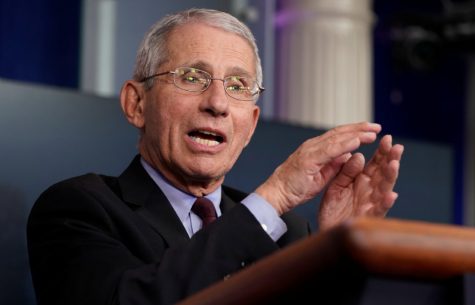The Politics (or lack thereof) of Mask-Wearing
December 14, 2020

“Even ___ is political now” is a phrase uttered frequently these days, from both sides of the political aisle. It seems to be a recurring theme of the contemporary American zeitgeist to make absolutely everything political, for better and for worse. Perhaps the most egregious example of this is the politicization of wearing masks, a basic preventative measure that keeps people safe. On social media platforms like Instagram and Twitter, some users have claimed that being forced to wear a mask is a violation of their rights, a tool weaponized by a tyrannical liberal conspiracy, all in the name of perpetuating the “planned-demic” (paranoia is consistently rampant). It is clear that not only is this an absurd take, it is a possibly dangerous one that is indicative of a larger issue. When things as small as wearing a piece of cloth over your face become painfully politicized, perhaps it’s time for us, as a society, to reflect on why so many things are polarizing, and why they become this way.
Masks themselves are proven to be effective by outlets like the New York Times and the Duke Department of Physics; they’re a simple preventative measure, advised to be used by the CDC and WHO. Countries that implemented masking early in the pandemic were far more successful than others at reducing the spread of the virus; proof enough of its effectiveness. One fairly objective explanation for this sudden inflammatory politicization of mask-wearing is that 2020 was an election year – tensions ran high as democrats and republicans scrambled to find new and innovative ways to sling mud at each other, with the citizenry of the country lost in the crossfire. This shouldn’t be news to anybody; politicians have, historically, constantly used election years to set any and every topic ablaze in the hopes of fueling the masses of voters to choose them over their opponents.
In perhaps the most tumultuous year in American history, 1968, Richard Nixon used the chaos following the assassination of MLK Jr. and the breaking out of protests across the nation against the Vietnam War to campaign for a return to law and order (history often repeats itself). Flash forward to 1992; after the officers involved in the beating of Rodney King are acquitted, the worst riots in American history broke out in Los Angeles, California. Bill Clinton was able to portray George H.W. Bush as ‘out of touch’ and unable to resolve the issues plaguing the nation, the riots being the foremost issue.
Historically, candidates, especially those running for president, are going to use any and every issue facing the nation, no matter how small or truly non-political, to differentiate themselves from each other and offer contracting solutions as to what should be done. This would explain why, conceptually, mask-wearing is such an unusually inflammatory subject.
Utilizing and exploiting issues for the betterment of their campaign is something that both President Donald Trump and former Vice President Joe Biden did the entire election cycle. Biden called for change and police reform in attempts to heal and repair social inequality, and the sitting President called for more of a law-and-order stance, similar to Nixon in ‘68. Both of these stances have worked in the past; regardless, this was an especially important year to vote, in order to have the masses’ voices heard and represented. Elections have consequences – and the outcome is in the hands of the people. The Dragon’s Tale interviewed Sydney Morrow (12), a senior at South, about why she personally thinks masks have become politicized; “People think it’s an infringement on personal freedom. Despite the fact that these recommendations are from health experts, it’s a matter of pride for some and ultimately a shameful excuse to put personal discomfort above consideration for others.” While others might not share exactly the same fiery sentiment as Morrow, the point still stands that masks, however politicized they may be, save lives; wear yours, for the betterment of our community.